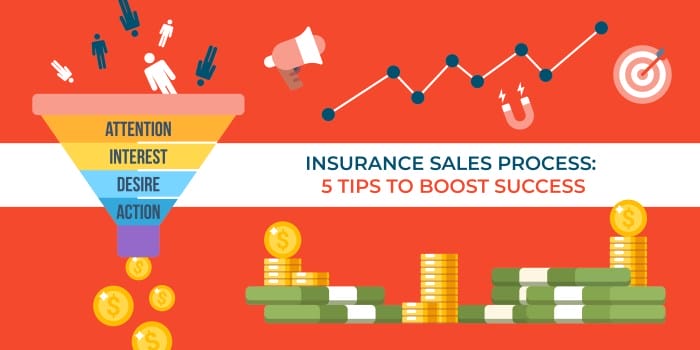In the ever-evolving landscape of insurance, agents stand as the cornerstone of success, bridging the gap between providers and policyholders. Their expertise, dedication, and sales prowess play a pivotal role in driving revenue and ensuring customer satisfaction. However, securing fair compensation for these valuable professionals remains a challenge.
This article delves into the intricacies of agent compensation, exploring various models, metrics, and strategies to attract, motivate, and retain top talent in the insurance industry.
Navigating the complexities of insurance agent compensation requires a comprehensive understanding of the diverse compensation structures available. Commission-based models, fee-based arrangements, and salary plus bonus structures each offer unique advantages and drawbacks. Understanding the nuances of these structures is essential for crafting a compensation plan that aligns with organizational goals and agent aspirations.
Introduction

Insurance agents play a pivotal role in the insurance industry, acting as intermediaries between insurance companies and policyholders. They provide invaluable guidance and expertise to individuals and businesses, helping them navigate the complexities of insurance policies and making informed decisions about their coverage needs.
However, despite their critical role, insurance agents often face challenges in securing fair compensation for their services. This can be attributed to various factors, including market competition, regulatory constraints, and a lack of transparency in commission structures.
Challenges in Securing Fair Compensation
Insurance agents encounter a multitude of challenges in their quest for fair compensation. These include:
- Market Competition: The insurance industry is highly competitive, with numerous agents vying for a limited pool of clients. This intense competition can lead to downward pressure on commissions, as agents are forced to offer lower rates to attract and retain customers.
- Regulatory Constraints: Government regulations often impose restrictions on the commissions that insurance agents can earn. These regulations are designed to protect consumers from excessive fees and ensure that insurance policies are sold on a level playing field. However, they can also limit the earning potential of agents, especially those who specialize in complex or niche insurance products.
- Lack of Transparency: The commission structures used by insurance companies are often opaque and difficult for agents to understand. This lack of transparency can make it challenging for agents to negotiate fair compensation and can lead to disputes over commissions.
Understanding Compensation Structures
Insurance agents are compensated in a variety of ways, depending on the type of insurance they sell, the company they work for, and their level of experience. The most common compensation models are commission-based structures, fee-based models, and salary plus bonus structures.
Commission-Based Structures
In a commission-based structure, insurance agents earn a percentage of the premium paid by the policyholder. The percentage varies depending on the type of insurance and the company, but it is typically between 5% and 20%. Commission-based structures are common for life insurance, health insurance, and property and casualty insurance.
- Pros: Commission-based structures can be very lucrative, especially for agents who sell high-value policies. They also give agents a lot of flexibility and control over their income.
- Cons: Commission-based structures can be unstable, as agents’ income can fluctuate depending on the number of policies they sell. Additionally, agents may be tempted to sell policies that are not in the best interests of their clients in order to earn a higher commission.
Fee-Based Models
In a fee-based model, insurance agents charge a flat fee for their services. The fee is typically based on the amount of time and effort required to provide the service. Fee-based models are common for financial planning, estate planning, and business insurance.
- Pros: Fee-based models provide agents with a more stable income stream than commission-based structures. They also allow agents to focus on providing high-quality service to their clients, rather than on selling policies.
- Cons: Fee-based models can be more expensive for clients than commission-based structures. Additionally, agents may be less motivated to sell policies if they are not earning a commission.
Salary Plus Bonus Structures
In a salary plus bonus structure, insurance agents receive a base salary plus a bonus based on their performance. The bonus is typically based on the number of policies sold, the amount of premium generated, or a combination of factors.
Salary plus bonus structures are common for all types of insurance.
- Pros: Salary plus bonus structures provide agents with a more stable income stream than commission-based structures. They also give agents an incentive to sell policies that are in the best interests of their clients.
- Cons: Salary plus bonus structures can be less lucrative than commission-based structures, especially for agents who sell high-value policies.
Sales Performance Metrics
Sales performance metrics play a crucial role in determining insurance agent compensation. These metrics measure an agent’s productivity, effectiveness, and overall contribution to the company’s success. By tracking and evaluating these metrics, insurers can fairly compensate their agents and align their incentives with the company’s goals.
Key sales performance metrics that impact compensation include policy volume, premium revenue, and customer retention. Each of these metrics provides valuable insights into an agent’s performance and helps insurers make informed decisions regarding compensation.
Policy Volume
Policy volume refers to the number of policies sold by an agent during a specific period. It is a direct measure of an agent’s ability to generate new business and expand the company’s customer base. A higher policy volume typically leads to higher compensation for agents, as it indicates their success in acquiring new customers and contributing to the company’s growth.
Premium Revenue
Premium revenue is the total amount of premiums collected by an agent from policyholders. It is a measure of the agent’s ability to sell policies with higher premiums and generate revenue for the company. Premium revenue is often used as a key factor in determining agent compensation, as it directly impacts the company’s profitability.
Agents who consistently generate higher premium revenue are typically rewarded with higher compensation.
Customer Retention
Customer retention measures an agent’s ability to maintain existing customers and prevent them from lapsing their policies. It is a crucial metric for insurers as retaining existing customers is more cost-effective than acquiring new ones. Agents who excel at customer retention are often rewarded with higher compensation, as they contribute to the company’s long-term profitability and stability.
These sales performance metrics are used in various ways to determine agent compensation. Some common methods include:
- Commission: Agents may receive a commission on each policy they sell, with the commission rate varying based on the type of policy and the premium amount.
- Bonus: Agents may receive bonuses for achieving specific sales targets or exceeding certain performance thresholds.
- Salary: Some agents may receive a fixed salary, regardless of their sales performance. However, their salary may be adjusted based on their overall performance and contribution to the company.
By using these sales performance metrics, insurers can create compensation structures that align with their business objectives and reward agents for their contributions to the company’s success.
Developing a Competitive Compensation Plan
Creating an effective compensation plan involves aligning it with organizational goals, setting realistic targets, and implementing a fair and transparent system.
Aligning Compensation with Organizational Goals
Compensation should incentivize behaviors and outcomes that support the organization’s strategic objectives. Consider aligning compensation with key performance indicators (KPIs) that measure progress towards these goals.
Setting Realistic and Achievable Compensation Targets
Compensation targets should be challenging but achievable, promoting a healthy balance between motivation and fairness. Overly ambitious targets may discourage agents, while easily attainable goals may fail to incentivize performance.
Designing a Fair and Transparent Compensation System
A fair compensation system ensures that agents are rewarded equitably for their contributions. Transparency in compensation criteria and decision-making processes fosters trust and motivation among agents.
Commission Structures

Commission structures are a cornerstone of insurance agent compensation, serving as powerful motivators for sales performance. They incentivize agents to maximize their efforts, leading to increased revenue and profitability for insurance companies.
Various commission structures exist, each with its unique advantages and suitability for different business objectives and agent profiles. Let’s delve into the most prevalent types and explore their impact on agent motivation.
Flat-Rate Commissions
Flat-rate commissions provide a fixed percentage of the premium for each policy sold, regardless of the policy’s size or complexity. This straightforward structure offers agents a predictable income stream and is commonly used for simple products with standardized pricing.
While its simplicity appeals to some agents, the flat-rate structure may not adequately reward top performers or incentivize sales of higher-value policies.
Tiered Commissions
Tiered commissions introduce multiple commission rates based on specific performance targets or policy values. As agents achieve higher sales volumes or meet specific milestones, they move up the tiers, earning progressively higher commission rates.
This structure effectively motivates agents to strive for excellence, as they are rewarded for surpassing targets and increasing their sales volume. However, it may also lead to intense competition among agents, potentially creating a cutthroat sales environment.
Progressive Commissions
Progressive commissions combine elements of both flat-rate and tiered structures. Agents earn a base commission rate for each policy sold, with additional bonuses or incentives for achieving higher sales targets. This structure provides a steady income foundation while encouraging agents to push their limits and strive for greater success.
Progressive commissions are often used for complex products or policies with varying premiums, allowing agents to earn higher rewards for selling more lucrative policies.
Fees and Bonuses

Fees and bonuses play a crucial role in the compensation structure of insurance agents, offering additional incentives beyond commissions. These elements contribute to a comprehensive package that attracts and retains top talent while ensuring exceptional customer service.
Fees can provide a steady income stream, supplementing commission-based earnings and offering a sense of financial security. This is particularly beneficial during periods of low sales or economic downturns. Fees can be charged for specific services, such as policy reviews, consultations, or administrative tasks.
Types of Fees
- Flat Fees: A fixed amount charged for a specific service, regardless of the time or effort involved.
- Hourly Fees: A rate charged for each hour of work performed, providing flexibility and allowing agents to adjust their income based on the time they invest.
- Service Fees: A fee charged for a specific service or task, such as policy issuance, claims processing, or underwriting.
Bonuses, on the other hand, are performance-based incentives designed to reward exceptional sales achievements or outstanding customer service. Bonuses can take various forms, including:
Types of Bonuses
- Sales-Based Bonuses: Tied to specific sales targets or goals, incentivizing agents to increase their sales volume and revenue generation.
- Customer Service Bonuses: Rewarding agents for providing exceptional customer service, measured through metrics such as customer satisfaction surveys, complaint resolution rates, or policy retention.
- Performance-Based Bonuses: Recognizing agents who consistently exceed expectations in terms of sales, customer service, or other key performance indicators (KPIs).
The combination of fees and bonuses creates a well-rounded compensation structure that provides agents with a stable base income while also offering the potential for additional earnings based on their performance and dedication.
Salary and Benefits

Salary and benefits play a crucial role in attracting and retaining top-notch insurance agents. A competitive compensation package can provide a stable base income, enhance job security, and motivate agents to perform at their best.
Salary serves as a foundation for agent compensation, offering a consistent and reliable source of income. It provides a sense of financial security, particularly during periods of low sales or economic downturns. Moreover, a competitive salary can help insurance agencies attract and retain experienced and talented agents who may have multiple job opportunities.
Types of Benefits
In addition to salary, insurance agents may be offered a range of benefits that can further enhance their compensation package and overall job satisfaction. These benefits may include:
- Health Insurance: Coverage for medical expenses, including doctor visits, hospitalization, and prescription drugs, can provide peace of mind and financial protection for agents and their families.
- Retirement Plans: Employer-sponsored retirement plans, such as 401(k) or pension plans, allow agents to save for their future and secure a comfortable retirement.
- Paid Time Off: Vacation days, sick leave, and holidays provide agents with opportunities to rest and recharge, maintain a healthy work-life balance, and attend to personal matters.
- Continuing Education and Training: Access to training and development programs can help agents stay up-to-date with industry trends, enhance their skills, and improve their overall job performance.
- Bonuses and Incentives: Performance-based bonuses and incentives can reward agents for achieving specific sales goals or exceeding expectations. These incentives can motivate agents to strive for excellence and boost their earnings potential.
Performance-Based Incentives

Incentivizing insurance agents based on performance is a powerful strategy to drive motivation and boost results. Performance-based incentives can take various forms, ranging from monetary rewards to non-monetary recognition, all geared towards enhancing agent morale and maximizing productivity.
Sales Contests
Sales contests are a widely adopted incentive technique that infuses a competitive spirit among agents. By setting specific sales targets and rewarding the top performers, sales contests create a sense of urgency and encourage agents to go the extra mile.
These contests can be structured around individual or team performance, fostering a healthy sense of competition while promoting collaboration.
Recognition Programs
Recognition programs celebrate and acknowledge the achievements of insurance agents, fostering a positive and motivating work environment. These programs can include regular awards ceremonies, public recognition on company platforms, or personalized thank-you notes from management. Recognition programs not only boost agent morale but also create a culture of appreciation and reinforce the value of exceptional performance.
Trips and Outings
Incentive trips and outings are highly effective in motivating insurance agents. The allure of travel and unique experiences can be a powerful motivator, encouraging agents to strive for excellence. These trips can be tied to sales targets or overall performance and often include activities that promote team bonding and foster a sense of camaraderie among agents.
Training and Development Opportunities

Providing training and development opportunities to insurance agents is crucial for enhancing their knowledge, skills, and productivity. This section delves into the significance of training, the various types of training programs that can be offered, and the benefits they bring to agents and the insurance agency as a whole.explanatory
paragraphTraining plays a pivotal role in ensuring that insurance agents are well-equipped with the necessary knowledge and skills to effectively serve clients, stay updated with industry trends and regulations, and achieve sales targets. It empowers them to provide personalized and comprehensive advice to clients, leading to improved customer satisfaction and retention rates.
Types of Training Programs
Insurance agencies can offer a diverse range of training programs to cater to the varying needs of agents at different stages of their careers. These programs may include:
- Online Courses: Online courses provide a flexible and convenient way for agents to learn at their own pace and on their own schedule. These courses often cover topics such as insurance products, sales techniques, and customer service.
- Workshops: Workshops are intensive, in-person training sessions that allow agents to engage with experienced trainers and peers. They provide hands-on experience and opportunities for role-playing and simulations.
- Mentorship Programs: Mentorship programs pair experienced agents with newer agents to provide guidance, support, and advice. This allows newer agents to learn from the experiences of their mentors and accelerate their professional development.
Evaluating Compensation Plans

Compensation plans are not set in stone and should be evaluated regularly to ensure they remain effective in attracting and retaining top talent, aligning with business goals, and motivating desired behaviors. Several key factors must be considered when evaluating the effectiveness of a compensation plan.
One crucial aspect is the alignment between the compensation plan and the organization’s overall strategic goals. The plan should incentivize behaviors and performance that contribute to achieving these goals, whether it’s increasing sales, improving customer satisfaction, or reducing expenses.
Monitoring and Adjusting the Plan
Regularly monitoring the performance of the compensation plan is essential to identify areas for improvement. This includes tracking key metrics such as sales growth, customer retention, and employee turnover. By analyzing performance data, organizations can determine whether the plan is achieving its intended objectives and if adjustments are necessary.
Compensation plans should be flexible enough to accommodate changes in market conditions, industry trends, and organizational priorities. Regular reviews allow organizations to make necessary adjustments to ensure the plan remains competitive and effective. This may involve revising commission rates, adjusting bonus structures, or introducing new incentives to align with evolving business needs.
Conducting Regular Reviews
To ensure the compensation plan remains effective, regular reviews should be conducted. These reviews should involve input from various stakeholders, including sales managers, human resources professionals, and the sales team. The purpose of these reviews is to assess the plan’s effectiveness, identify areas for improvement, and make necessary adjustments to optimize performance.
Organizations should also consider conducting surveys and gathering feedback from the sales team to understand their perspectives on the compensation plan. This feedback can provide valuable insights into the strengths and weaknesses of the plan and help identify areas where improvements can be made.
Closure

In conclusion, compensating insurance agents effectively is a multifaceted endeavor that demands a delicate balance between fairness, motivation, and organizational sustainability. By carefully considering sales performance metrics, developing competitive compensation plans, and providing comprehensive training and development opportunities, insurers can create an environment that fosters agent success and drives exceptional business outcomes.
Embracing these strategies will not only attract and retain top talent but also elevate the insurance industry as a whole.
FAQ Corner
What are some common challenges faced by insurance agents in securing fair compensation?
Insurance agents often encounter challenges such as inconsistent income streams, lack of transparency in compensation structures, and difficulty in negotiating favorable terms with insurers.
How can insurance companies create a competitive compensation plan that attracts and retains top talent?
Insurance companies can develop competitive compensation plans by aligning compensation with organizational goals, setting realistic and achievable targets, and providing a mix of base salary, commission, bonuses, and benefits.
What are some effective performance-based incentives that can motivate insurance agents?
Effective performance-based incentives for insurance agents include sales contests, recognition programs, trips, and bonuses tied to specific performance metrics such as policy volume, premium revenue, and customer retention.
Why is it important for insurance companies to provide training and development opportunities to their agents?
Providing training and development opportunities to insurance agents enhances their knowledge, skills, and productivity, ultimately leading to improved sales performance and customer satisfaction.
How can insurance companies evaluate the effectiveness of their compensation plans?
Insurance companies can evaluate the effectiveness of their compensation plans by monitoring key metrics such as agent turnover, sales growth, customer satisfaction, and profitability. Regular reviews and adjustments based on performance data ensure that the plan remains competitive and aligned with organizational objectives.



